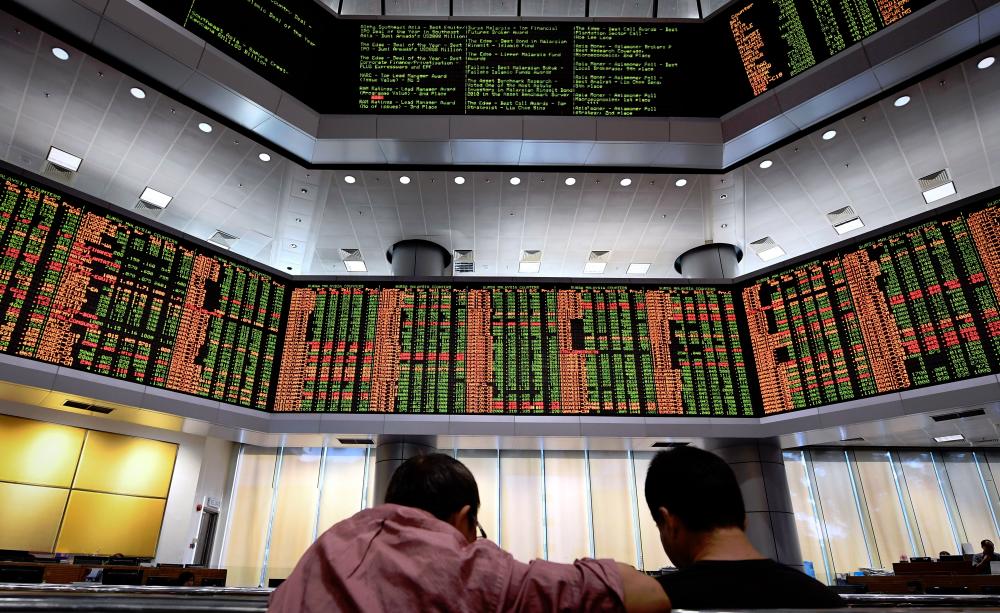PETALING JAYA: As the local bourse has slipped into bear market territory after the recent selloff, MIDF Research cautioned that it could propagate a rise in “stale bulls”, which will negatively impact the short- to medium-term price momentum of the equity market, said MIDF Research.
The term “stale bulls” refers to investors who bought shares with hopes that their prices would rise and now find that they have not risen and want to sell them.
“Hence the main consequence of entering the bear territory is principally on the short- to medium-term market valuation as burgeoning stale bulls may generate upper resistance in subsequent cyclic upturns,” the research house said in a report today.
A bull market ends when its price falls more than 20% from its high. In the case of the FBM KLCI, the threshold was at 1,516 points. At today’s close of 1,495.19 points, the key index has fallen 20.8% from its recent peak of 1,887.75 points recorded in April 2018.
Malaysia’s bull run started after the global financial crisis in 2008-2009, and it subsequently survived the euro crisis in 2011 with a 16.5% fall in the FBM KLCI.
However, on Monday, it slumped 2.69% to close at 1,490.06 points, due to heightened political uncertainties which were engendered by a number of events and culminated in the resignation of the prime minister, who was then appointed interim premier.
MIDF Research warned that the key index may see its valuation tapering further towards the lower end of its historical range.
“Hence our year-end 2020 baseline PER (price-to-earnings) valuation target for the KLCI is lowered from 16.5 to 16 times,” it said, noting that the year-end 2020 baseline target has been revised downward from 1,680 to 1,600 points.













